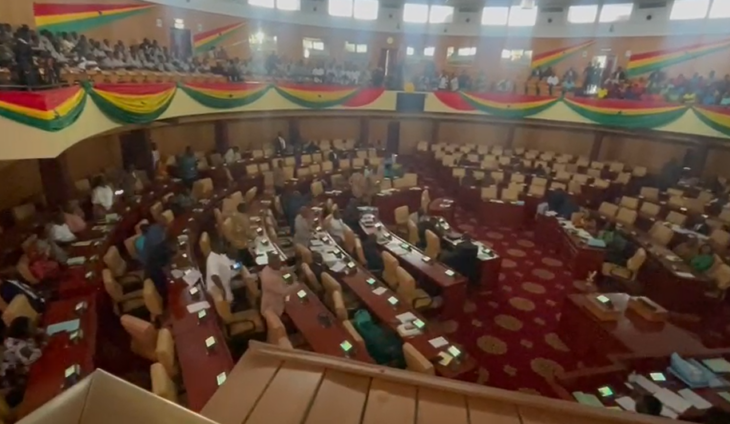Source: Myjoyonline.com
The Dean of the Law School at the University for Professional Studies, Accra (UPSA), Prof. Ernest Kofi Abotsi, has underscored that no single entity can unilaterally direct Parliament in its legislative functions.
According to him, while the court can intervene in matters of external legal compliance, the principle of separation of powers mandates that each arm of government operate autonomously within its jurisdiction.
He also highlighted the principle of checks and balances as a mechanism to foster cooperation among different branches while maintaining their independence.
“No one can direct Parliament on how it does its job… The executive arm of government cannot direct Parliament in the conduct of its legislative business.
“However, the checks and balances ensure that sometimes, cooperation happens between the various organs,” Prof. Abotsi said during a discussion on JoyNews’ PM Express on Wednesday.
He further explained that while the executive may offer suggestions or preferences to Parliament, it cannot dictate legislative outcomes, otherwise, each branch retains the authority to assert its position.
“Perhaps it is in that context at best that one can say that the executive may want to nudge Parliament in a particular direction and hopes that Parliament takes the bait. And if Parliament doesn’t take the bait, then the Executive can assert itself.
“However, where the cooperation between the organs fails, each asserts its authority, and in the process, there is a collapse of the machinery of government,” he told host Aisha Ibrahim.
This comes after the Presidency in a letter on Tuesday, instructed Parliament to refrain from transmitting the recently passed Human Sexual Values Bill also known as the Anti-LGBTQ+ bill to President Akufo-Addo.
The correspondence which was signed by Nana Bediatuo Asante explained that the decision was due to two pending applications for an order of interlocutory injunction before the Supreme Court.
Meanwhile, tensions have been high since Parliament received the letter from the Presidency.
Parliament has also suspended the consideration of the nomination of Ministers and Deputy Ministers of State by President Akufo-Addo.
With a similar justification, the Speaker of Parliament, Alban Bagbin explained the legislature could not approve the President’s appointees because of an interlocutory injunction filed at the Supreme Court by MP for South Dayi, Rockson-Nelson Dafeamekpor.
Elaborating on the powers of the legislature, Prof Abotsi said that Parliament can pass a bill without executive assent after a series of back-and-forth exchanges.
Touching on the constitutional process of bill passage, Prof. Abotsi noted that while the executive’s participation is important, Parliament maintains the final say in legislative matters.
“Parliament can pass the bill without the participation of the Executive, but it is a collaborative process and the expectation is that they will not over-rule each other but cooperate with each other,” he said.
Source: www.myjoyonline.com








